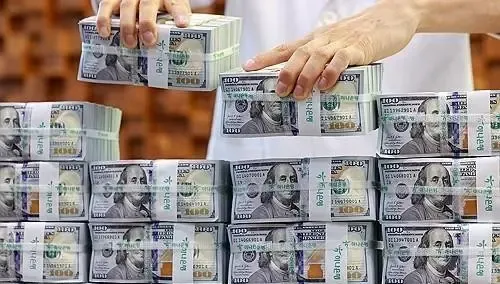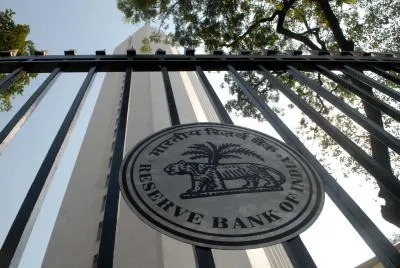Why Did Foreign Currency Deposits in South Korea Plummet in October?

Synopsis
Key Takeaways
- Foreign currency deposits fell by $5.26 billion to $101.83 billion.
- Corporate repayments of loans were a primary factor.
- Individual holdings slightly increased.
- The stock market reacted negatively, especially in tech shares.
- Ongoing uncertainties in AI technology are influencing market dynamics.
Seoul, Nov 28 (NationPress) Foreign currency deposits in South Korea experienced their largest decrease in nearly two years during October, largely due to heightened corporate repayments of foreign-currency loans and increased overseas investments by pension funds, as indicated by central bank data released on Friday.
The total outstanding foreign currency-denominated deposits held by residents reached $101.83 billion at the end of October, representing a decline of $5.26 billion from the previous month, according to data from the Bank of Korea (BOK), as reported by Yonhap news agency.
This marked the steepest monthly drop since January 2024, when deposits fell by $5.78 billion, and marked the second consecutive month of decline.
Residents include South Korean nationals, foreigners living in the country for over six months, and foreign enterprises. Interbank deposits are not included in this data.
A BOK official stated, "The decline was primarily attributed to corporate repayments of foreign-currency debts, a reduction in investor deposits at securities firms, and the execution of overseas investments by pension funds, among other factors."
Corporate foreign currency deposits decreased by $5.5 billion month-on-month, settling at $86.76 billion, while individual holdings saw an increase of $240 million, totaling $15.07 billion.
In terms of currency, deposits denominated in U.S. dollars fell by $5.08 billion to $85.63 billion, while Japanese yen deposits dropped by $260 million to $8.63 billion.
Euro deposits remained nearly stable at $5.01 billion, whereas Chinese yuan deposits increased by $60 million to $1.25 billion, as per the data.
In the meantime, South Korean stocks saw a significant downturn late Friday morning as investors offloaded tech shares amid ongoing uncertainties surrounding artificial intelligence (AI) technology.
The benchmark Korea Composite Stock Price Index (KOSPI) fell by 39.81 points, or 1 percent, to 3,947.1 as of 11:20 a.m.
Most stocks traded negatively, with market leader Samsung Electronics dropping by 1.93 percent, and SK Hynix declining by 0.74 percent.
Top automaker Hyundai Motor slipped by 0.19 percent, while its sibling, Kia, fell by 0.26 percent.
Leading battery manufacturer LG Energy Solution plummeted by 5.94 percent, and defense giant Hanwha Aerospace declined by 2.2 percent.
As of 11:20 a.m., the local currency was valued at 1,465.5 won against the dollar, down 0.25 won from the previous day's close.









